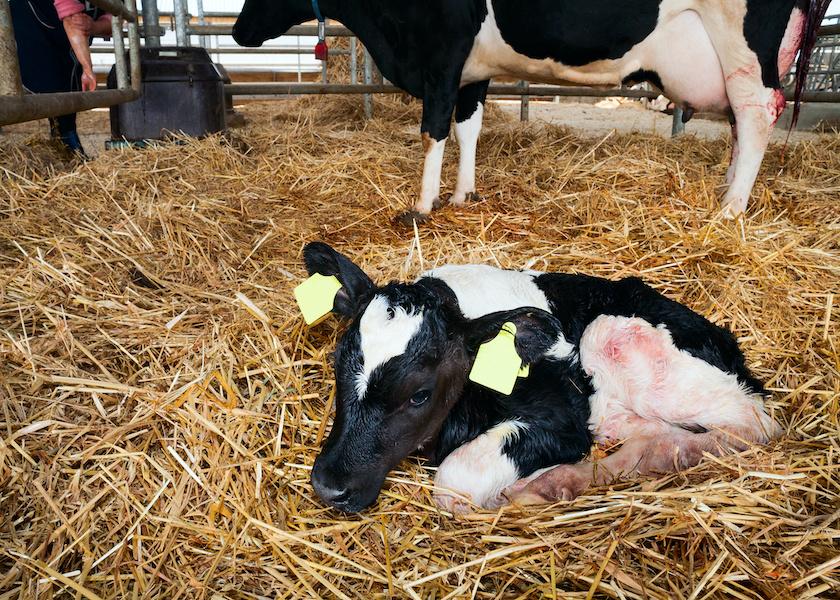Does Acidification Improve Colostrum?

Feeding acidified milk to preweaned calves has been shown in some studies to improve calf health and performance.
But what about colostrum? Could acidification be beneficial to it as well? A team of researchers at the University of Pennsylvania conducted a preliminary study to find out.
Their research project, summarized recently in the Journal of Dairy Science, was based on previous work by their team that showed calves with diarrhea had a loss of beneficial digestive-tract bacteria, which were replaced by detrimental pathogens that caused digestive illness.
They sought to determine whether acidifying colostrum could serve as a proxy for pasteurization, with the goal of lowering harmful bacterial levels fed via colostrum. Acidification has been shown to decrease bacterial loads in milk by lowering the pH to 4.0-4.5.
Additionally, they wanted to evaluate the fecal microbiota of calves fed acidified colostrum compared to those fed standard colostrum.
The study compared results from 5 calves fed acidified colostrum versus 5 calves fed untreated colostrum. All colostrum contained at least 24% Brix to ensure quality, and each batch was pooled between two dams.
Calves in both groups were fed 4 quarts of colostrum within 1 hour of birth, and an additional 2 quarts 12 hours later. The acidified colostrum was treated immediately before feeding with 9% formic acid, with a target pH of 4.0-4.5. [The researchers noted the experimental use of formic acid in this study. In the U.S., only citric acid and potassium sorbate are FDA-approved methods of acidifying milk for calves].
Both study groups were fed acidified milk for the remainder of their milk-feeding phase. Fecal samples were collected at 24 hours and 48 hours after birth, and then weekly until weaning at 8 weeks. DNA extraction and evaluation were performed to assess bacterial populations in the gut microbiota over time.
The researchers found that the calves fed acidified colostrum had significantly higher levels of the beneficial bacterial Faecalibacterium at 1 week of age. Faecalibacterium is known to produce butyrate, a key, short-chain fatty acid that promotes development of the intestinal tract lining in ruminants.
Previous research studies have linked Faecalibacterium to improved weight gain and decreased diarrhea incidence in preweaned calves. Those studies also showed that Faecalibacterium grows most readily in pH conditions at 4.0-4.5.
The researchers deduced that acidifying colostrum may help jump-start Faecalibacterium production in the digestive tract in the first week of life. Its populations normally would not start increasing until week 2 of life.
Although they acknowledged the study’s sample size was small, the team concluded that feeding acidified colostrum to dairy calves at birth may lead to early colonization of Faecalibacterium, possibly leading to supporting improvement in health and growth performance early in life.
For more on calf management, read:
- The Eyes Have It When Detecting Early Calf Respiratory Disease
- Mixology Matters with Milk Replacer
- Strategic Management of Your Future Milking Herd







